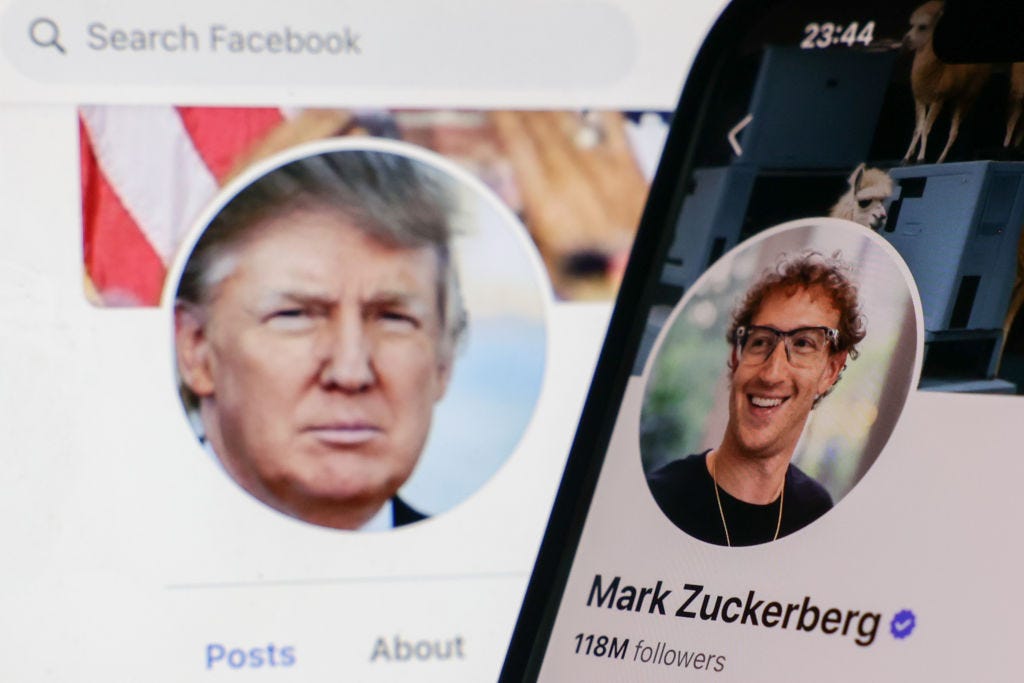The broligarchy's Faustian bargain — and ours
Are there still bluer skies online, or is it time to refocus on real life?
This week Meta capitulated.
The social media giant discontinued third-party fact-checking operations in the U.S. and brought MAGA-world figures like the UFC’s Dana White onto the company’s board of directors, all while opening up the company’s platforms to the sort of political posting it deprivileged during Trump’s first term. It certainly seems that th…




